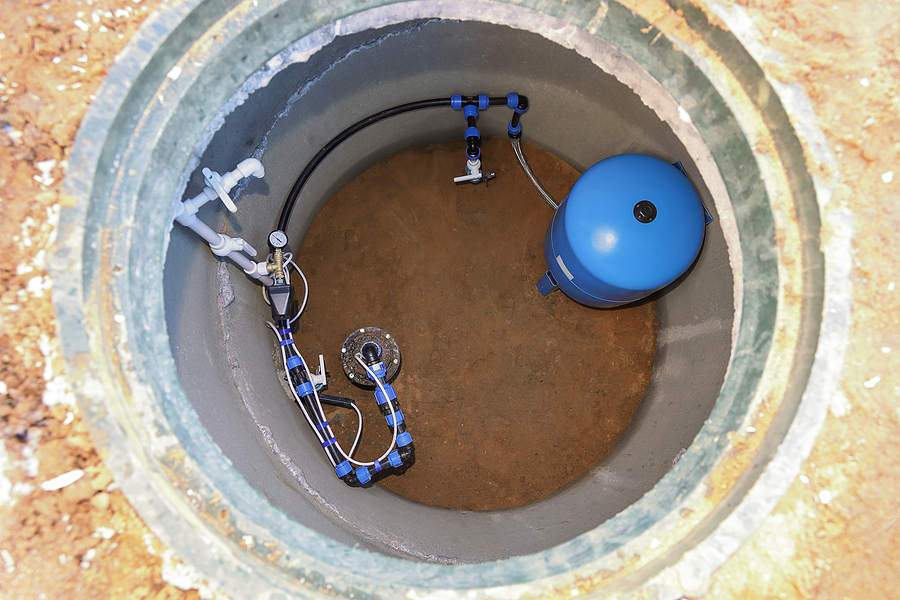Regular well inspections are essential for ensuring the safety and quality of your water supply. For homeowners relying on well water, knowing when to schedule a well inspection, understanding the inspection process and adequately preparing for it can prevent potential issues and maintain system efficiency.
Why Regular Well Inspections Are Important
Ensuring the safety and quality of your water is paramount, and regular well inspections play a critical role in this. These inspections help identify contaminants and other issues that could compromise your drinking water. By detecting problems early, you can take corrective actions to ensure your water remains safe for consumption.
Additionally, regular inspections can prevent costly repairs. Routine checks can uncover minor issues before they escalate into major, expensive repairs. For example, detecting a small leak or a developing crack in the well casing early on can save you from costly repairs or even a complete well replacement. Inspections help identify and rectify inefficiencies, such as clogged filters or worn-out pumps, which can affect water pressure and flow.
When to Schedule a Well Inspection
Scheduling regular well inspections is key to maintaining a healthy water system. It is generally recommended to schedule an inspection annually. This routine check-up helps maintain the system’s health and ensures any emerging issues are promptly addressed. In addition to the annual check-up, it is advisable to have an inspection conducted after any significant weather events, such as heavy storms or floods, which could impact the well’s integrity.
Specific signs indicate the need for an immediate well inspection. These include changes in water taste, odor, or color; decreased water pressure; unexplained spikes in water bills; the presence of sediment or debris in the water; and any structural damage around the well. Paying attention to these signs and scheduling an inspection when they appear can prevent potential problems and ensure the safety of your water supply.

How to Prepare for a Well Inspection
Preparing for a well inspection involves several steps to ensure the process goes smoothly. One of the first steps is to clear the area around the well. Ensure that the wellhead and the surrounding area are accessible. Remove any obstacles such as plants, debris, or equipment that might hinder the inspector’s access. This preparation allows the inspector to thoroughly examine the well without obstructions.
Gathering relevant documentation is also helpful. Have any previous inspection reports, water test results, and maintenance records available for the inspector. This information provides the inspector with the wells maintenance and repair history. Additionally, making a note of any problems or changes you have noticed with your water system can help the inspector focus on specific areas of concern. This preparation can lead to a more efficient and effective inspection.
What to Expect During a Well Inspection
A comprehensive well inspection typically involves several key steps. The process usually begins with a visual inspection. The inspector will examine the wellhead, cap, and surrounding area for any visible signs of damage or contamination risks. This visual check helps identify any obvious issues that might need immediate attention.
The inspection also includes a mechanical check. The inspector will assess the condition of the pump, pressure tank, and other mechanical components to ensure they are functioning correctly. This check helps identify any mechanical issues that might affect the well’s performance. Understanding the inspection process can help homeowners prepare and ensure the inspection goes smoothly.
Post-Inspection Steps
After the inspection, you will receive a detailed report outlining the findings. This report will highlight any issues detected, the results of water tests, and recommendations for addressing any problems.
If the inspection uncovers any issues, it is vital to address them promptly. This might involve cleaning or replacing filters, repairing leaks, or even installing a new pump. Your inspector will advise you on the best course of action based on the findings. Addressing issues early can prevent more severe problems and ensure the continued safety and efficiency of your well system.
Common Well Inspection Findings
During a well inspection, certain problems are commonly identified. One typical finding is the presence of contaminants in the water. This can include bacteria, nitrates, or other harmful substances that pose a health risk. Detecting these contaminants early allows for timely remediation to ensure the safety of your drinking water.
Structural issues are another common finding during well inspections. These can include cracks or damage to the well casing or cap, which can compromise the integrity of the well and allow contaminants to enter the water supply. Addressing structural issues promptly is essential for maintaining a safe and reliable well system.
Mechanical failures are also frequently identified during inspections. Worn-out or malfunctioning pumps and pressure tanks can affect the well’s performance and lead to inconsistent water supply or pressure. Regular inspections help identify these issues early, allowing for repairs or replacements to ensure the system operates efficiently.
Sediment and debris accumulation is another issue often found during well inspections. Sediment can affect water quality and clog filters, reducing the system’s efficiency. Regular cleaning and maintenance can help prevent these issues and ensure a clean water supply.

Trust Waterways for Expert Well Inspections
Ensuring the safety and quality of your water supply is important, and regular well inspections are a vital part of this process. At Waterways Water Service, we understand the importance of a reliable and efficient well system. Our experienced professionals are dedicated to providing thorough and accurate well inspections, helping you identify and address potential issues before they become major problems.
Choosing Waterways Water Service for your well inspections means trusting a team with a proven track record of excellence. We use the latest technology and methodologies to ensure your water is safe and your system is functioning optimally. With our comprehensive inspection services, you can have peace of mind knowing that your well is in expert hands. Don’t wait for problems to arise. Schedule your well inspection with Waterways Water Service today and take the first step towards maintaining a safe and reliable water supply.
Well Inspection FAQs
How often should a well inspection be done?
It is generally recommended to schedule a well inspection annually. This routine check-up helps maintain the system’s health and ensures any emerging issues are promptly addressed.
What should I do if my water changes in taste, odor, or color?
Changes in water taste, odor, or color are signs that an immediate well inspection is needed. These changes can indicate potential contamination or other issues with your well system.
What steps should I take to prepare for a well inspection?
To prepare for a well inspection, clear the area around the well, gather relevant documentation such as previous inspection reports and maintenance records, and note any issues you have noticed with your water system. This preparation helps ensure a thorough and efficient inspection.
What are common problems found during well inspections?
Common problems identified during well inspections include the presence of contaminants in the water, structural issues with the well casing or cap, mechanical failures of the pump or pressure tank, and accumulation of sediment and debris. Addressing these issues promptly is crucial for maintaining a safe and reliable water supply.

